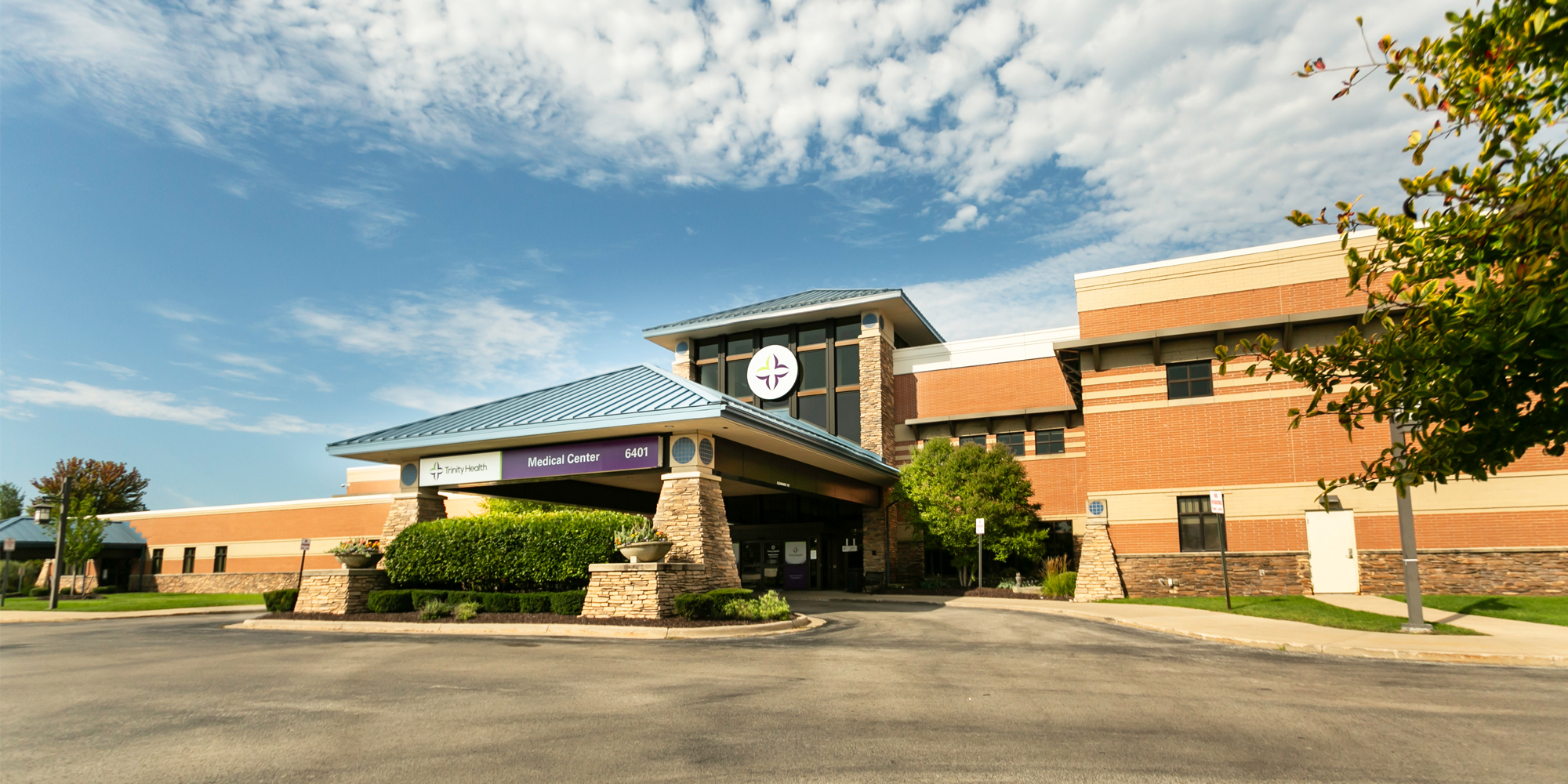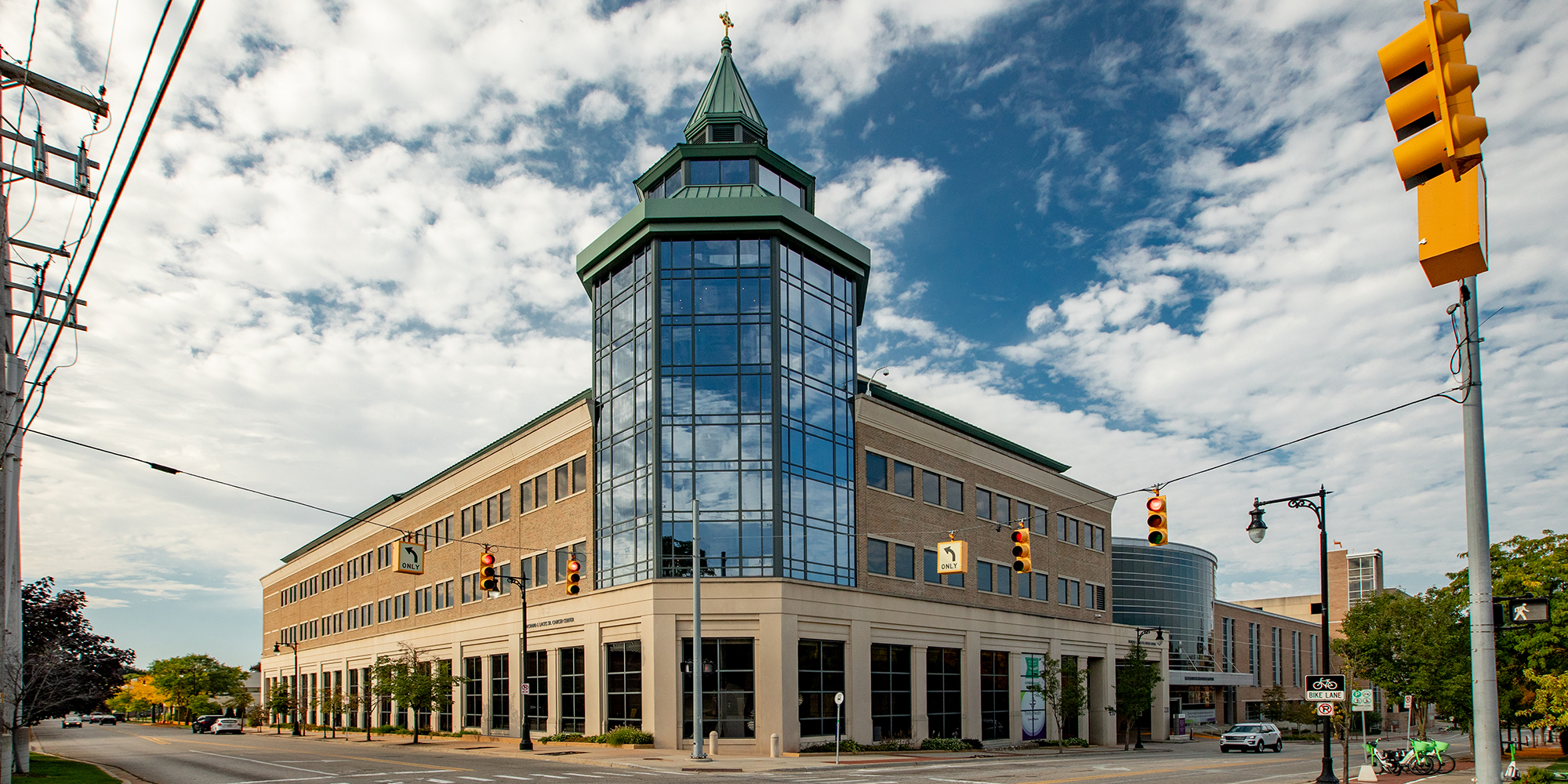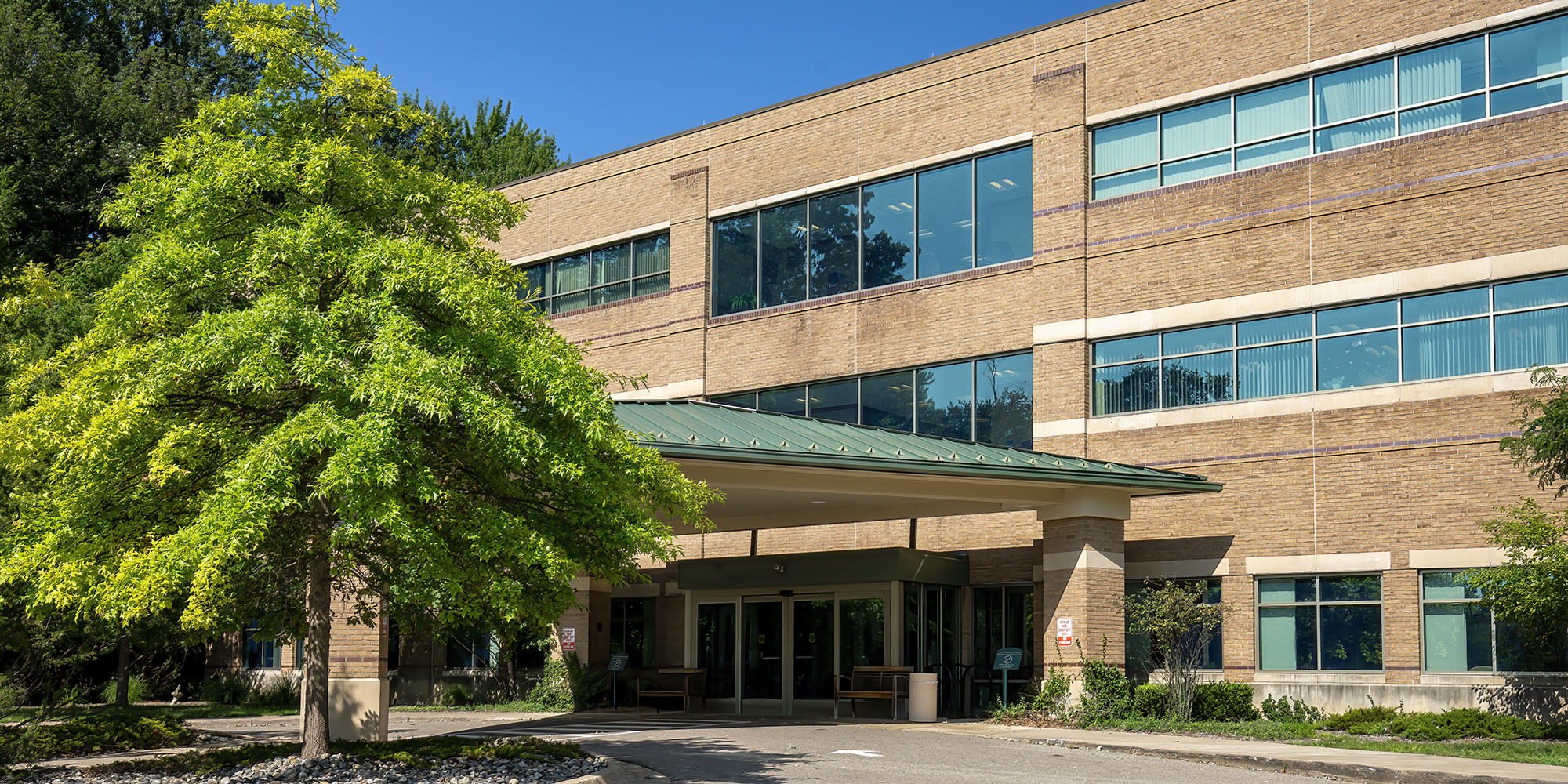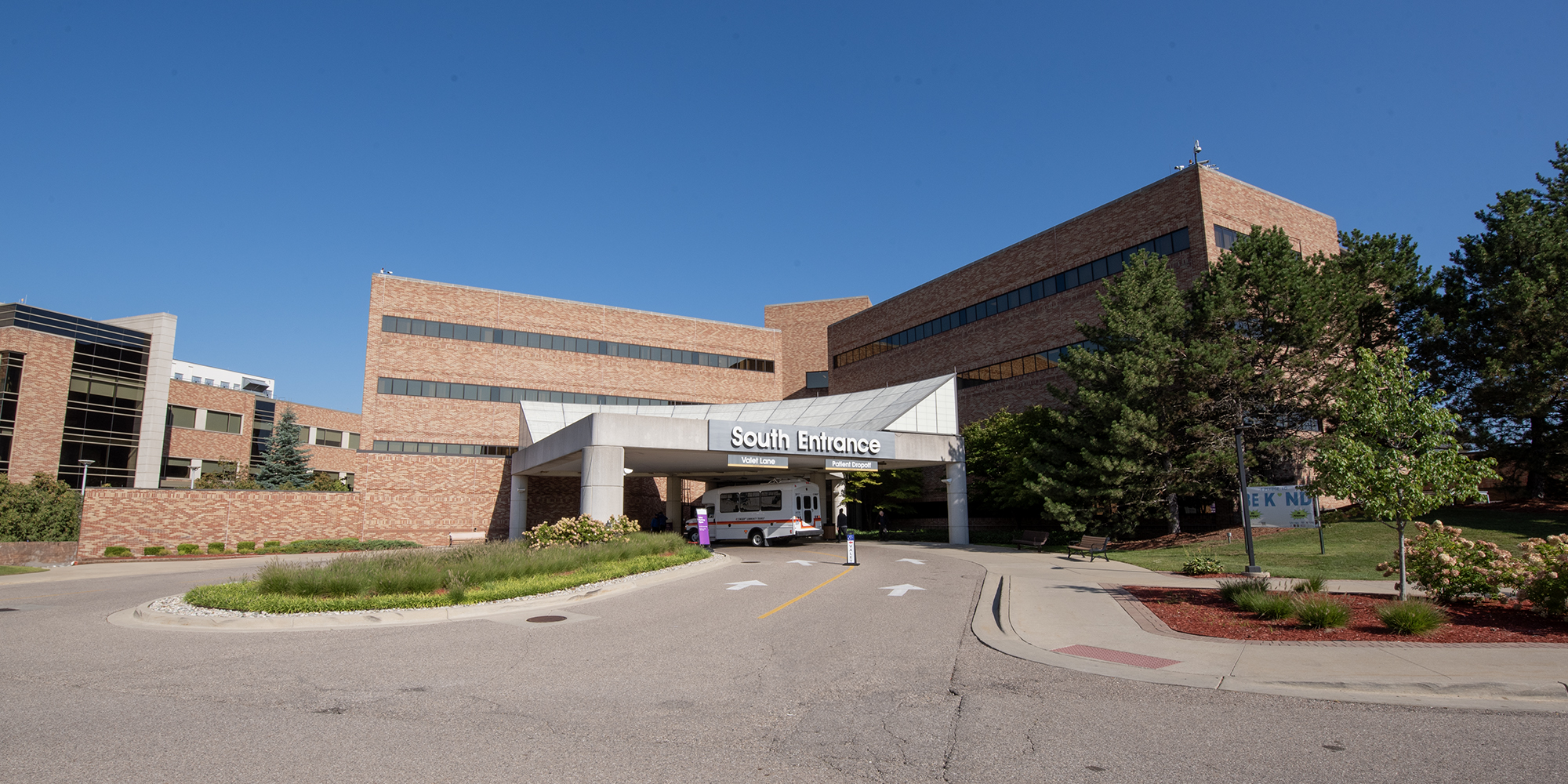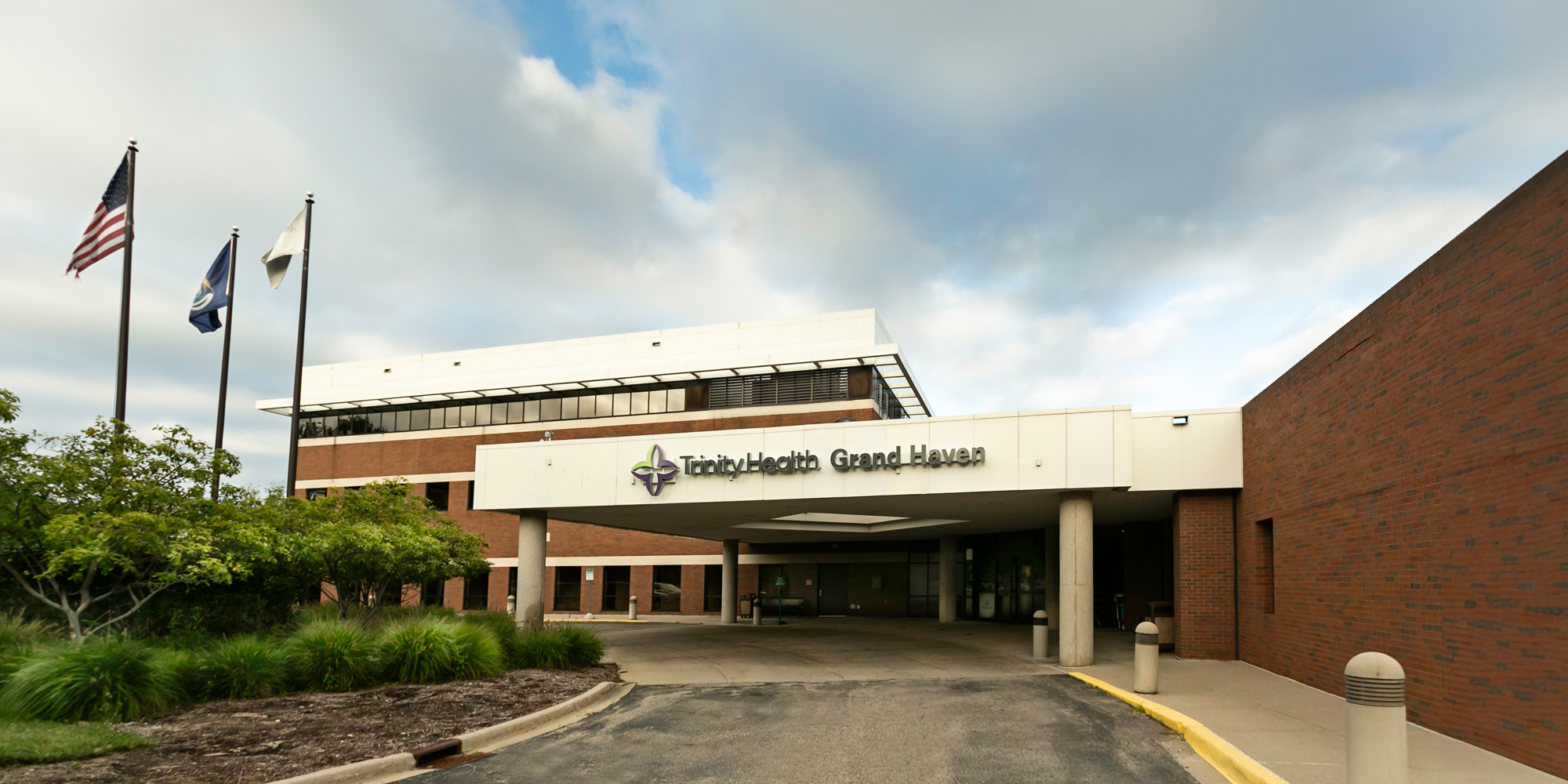Benign Breast Conditions
Many women experience benign (noncancerous) breast conditions during their lifetime. Benign breast conditions don’t usually cause serious health issues but can cause pain or stress. In some cases, benign breast changes can be linked to a higher risk of breast cancer.
Our specialists have years of experience diagnosing and treating all types of benign breast issues. You get answers quickly and receive a personalized care plan.

Notice a change in your breasts?
Talk to your doctor about any changes in your breasts.
Don't have a primary care doctor?
Our Locations
Benign Breast Conditions at Trinity Health Michigan: Why Choose Us?
Our breast health specialists provide exceptional care for everything from routine needs to complex issues. Highlights of our program include:
- Expert team: You receive care from specialists who are knowledgeable in breast conditions and the most effective ways to address them. Our team includes board-certified OB/GYNs and breast radiologists, nurse practitioners, physician assistants and radiology technicians.
- Compassionate care: Breast conditions can be difficult to talk about, so we focus on your privacy and comfort. Some conditions can also mimic breast cancer, leading to fear or anxiety. Your care team helps you feel at ease at every appointment.
- Convenience: You deserve health care that fits easily into your life. Our physicians see patients in several locations across Southeast and West Michigan.
- Accurate diagnosis: We provide advanced breast imaging services so you receive an accurate diagnosis. Our breast imaging centers offer timely appointments and quick turnaround of test results. Learn more about our mammography and breast cancer screening services.
Noncancerous Breast Conditions We Treat
Our providers diagnose and treat benign breast lumps and other breast issues. We provide complete care for:
Calcifications
Calcifications (calcium deposits) may show up on your screening mammogram. They are usually harmless, but in a few cases, calcifications can be a sign of breast cancer. Our providers perform imaging tests to rule out breast cancer. We answer your questions and discuss follow-up care, such as regular mammograms or checkups.
Cysts
These fluid-filled sacs may cause pain, or you may not feel them at all. They can show up on a mammogram, and we often confirm the diagnosis with an ultrasound. We provide benign breast cyst draining during an outpatient procedure if needed.
Fat Necrosis
Fat necrosis is a lump that may form after an injury or radiation treatment on your breast. Usually, these lumps don’t need treatment. They may shrink or go away with time.
Fibroadenomas
This common benign breast tumor doesn’t increase your risk of getting breast cancer. Our specialists may monitor these lumps with regular physical exams or breast ultrasounds.
Fibrocystic Breast Changes
Also called fibrosis, this condition may feel like rubbery or ropey lumps in the breast, but it is not harmful. Fibrosis is made up of thickened breast tissue and sometimes cysts. We explain your treatment options, which may include draining large cysts or taking medications for pain.
Hyperplasia
Hyperplasia is a condition where cells in the breast are dividing too quickly. Most of the time, hyperplasia is not linked to breast cancer. But in some cases, this condition is a sign that you have a higher risk of getting breast cancer.
Our specialists may take a sample of the cells, usually with a minimally invasive needle biopsy. Our pathologists examine the cells under a microscope for an accurate diagnosis. Then, we explain your treatment options and follow-up care options, if needed.
Intraductal Papilloma
These benign tumors affect the milk ducts in the breast. Our breast specialists may recommend a needle biopsy to confirm the diagnosis.
In some cases, intraductal papilloma can turn into cancer, and we recommend surgery to remove them. Our experienced, board-certified breast surgeons remove all types of breast lumps. If you need surgery, we focus on a positive cosmetic result by minimizing scars.
Mastitis
This infection of the milk ducts in the breast usually affects breastfeeding women and often requires antibiotics. We prescribe medications that are safe for breastfeeding women and their babies.
Nipple Changes
Nipples may leak fluid because of hormonal changes, pregnancy or problems with the milk ducts. In a few cases, nipple discharge is a sign of breast cancer. We perform a physical exam and imaging tests, if needed, to pinpoint the issue and rule out breast cancer.
Many benign breast conditions don’t require treatment. For example, we may recommend monitoring, or watchful waiting, for a breast cyst that isn’t causing pain or other symptoms. We explain all your treatment options so you can make informed decisions about your care.
Sclerosing adenosis
Sclerosing adenosis causes the lobules (milk-producing glands) to grow larger and form scar tissue. This benign condition may look like breast cancer on a mammogram, so we usually perform a biopsy for an accurate diagnosis. Usually, this condition doesn’t require surgery unless it’s causing breast pain.





